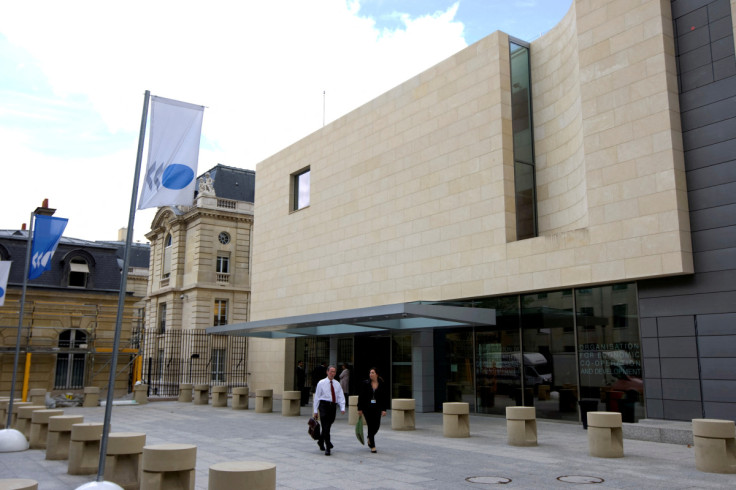OECD Ministerial Council Meeting plans to tackle the world's most pressing challenges
Britain's Technology Secretary has today chaired international talks on the future of technological development.

Alongside institutions like the G7 and the G20, one intergovernmental forum which promotes global trade between nation-states is the Organisation for Economic Cooperation and Development (OECD).
The OECD was founded in 1961 and now consists of 38 member-states, that share a broad set of common values. They include a commitment to protecting individual liberty, democratic values, the rule of law, and human rights.
The 2023 OECD Ministerial Council Meeting (MCM) will take place tomorrow from the seventh to the eighth of June in Paris. This will be an opportunity for member-states to come together to consolidate commitment to their common values and to tackle some of the most pressing challenges facing human civilisation today. For example, ensuring inclusive economic growth whilst meeting the demands of climate change and net zero commitments.
However, ahead of tomorrow's MCM, Britain has today chaired international talks on the "opportunities and challenges presented by emerging technologies" such as artificial intelligence (AI), the metaverse, engineering biology, and immersive technologies.
Indeed, despite its potential benefits, AI represents one of the biggest security risks to humanity's future in the eyes of some. Therefore it is vital that we proactively manage its development so that it does race out of control. Clearly, international cooperation has a key role to play in bringing together those at the forefront of AI development around the world.
The talks will be part of the inaugural event of the Global Forum on Technology which was announced by the British government in conjunction with the OECD last year. The government have committed £2 million of funding to the forum, with the United States and Spain also contributing to investment.
British funding will go into the organisation of future events as well as efforts to consolidate the "evidence and analysis" necessary to anticipate the risks and opportunities which emerging technologies will bring.
Crucially, Britain's ambition is to become a science and technology superpower by 2030, a goal which is arguably contingent on the exercise of soft power (the power of influence) and international leadership as well as in being at the forefront of technological innovation at a purely material level.
Whilst Britain's power is limited on the global stage compared to the likes of the United States and China, our existing technology markets are worth taking note of. Britain is third globally for tech investment, trailing only the United States and China.
Arguably, one limitation of the OECD's global significance is that China is not a member. Whilst China is one of many countries outside of the OECD which has cooperated as a non-member in the past, there is no mention of any Chinese representative on the Heads of Delegation present at today's Global Forum on Technology.
Indeed, speaking at the recent IISS Shangri-La Dialogue, British Defense Secretary Ben Wallace has recently stated that without China's cooperation "none of our most fundamental global issues can be solved".
Moreover, present at today's discussions were both OECD members and non-members including Australia, Brazil, Senegal, Israel, Japan, Korea, New Zealand, Ukraine, the United States, Turkey and the European Union.
Britain was represented in Paris at the talks by Technology Secretary Chloe Smith. Smith is undertaking the position of Technology Secretary while Michelle Donelan is on maternity leave. With an academic background in English Literature at the University of York, Smith became Conservative MP for Norwich North in 2009.
After opening the event, the Technology Secretary chaired "a high-level panel" which focused on "shaping our future at the tech frontier". The panel involved representatives of the United States, Spain, Ukraine, and the OECD.
She has emphasised the need to establish "the cross-border guardrails required to manage the risk" associated with different kinds of emerging technologies.
More specifically, the forum tackled three overlapping themes that pertain to the overarching objective of "responsible and values-based" technological development.
Firstly, how can technological development be "responsible and rights-oriented"? The second theme pertains to "emerging technologies". How can they create more "resilient societies" and how can they tackle climate change more effectively? Thirdly, in what ways can technology policy predict and address "digital and technological divides" more effectively?
Importantly, it is not just governments that attended the forum. Global businesses, trade unions and civil society groups attended according to the Department of Science, Innovation and Technology.
© Copyright IBTimes 2024. All rights reserved.





